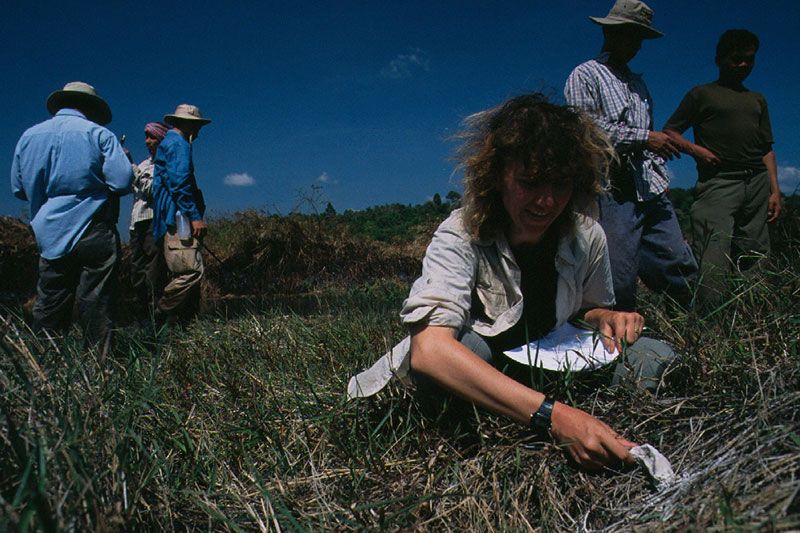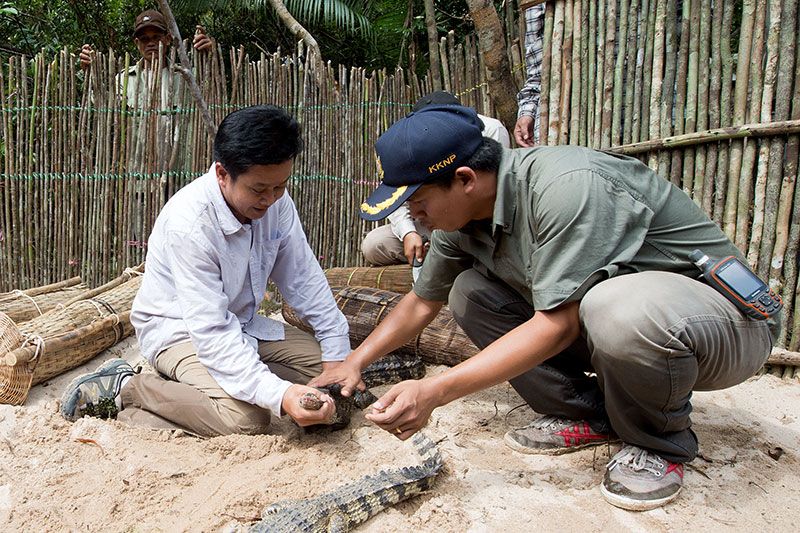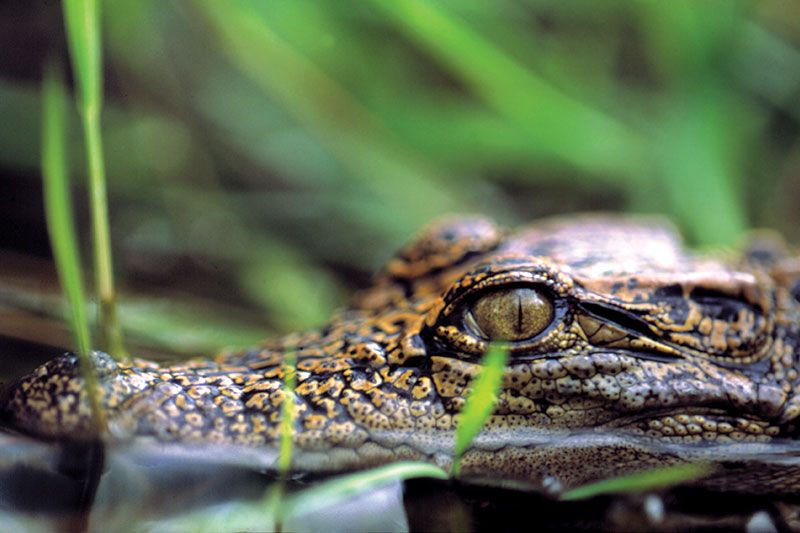Creating a future for Siamese crocodiles
In 2000, Siamese crocodiles, thought to be extinct, were rediscovered in the wild in Cambodia by a team from Fauna & Flora International (FFI). Found in the Cardamom Mountains, one of the last intact rainforests of Southeast Asia, there are estimated to be just 250 adults in the wild.
PTES has been supporting the project for several years, providing critical funds to pay for a captive breeding centre which employs three full-time crocodile keepers. Threats to the Siamese crocodile include capture from the wild to breed for fine, soft leather and the decline of their wetland habitat. Crocodile farms still exist today, but the majority of animals there are hybrids – a mix of two different species – which compromises the genetic purity of the Siamese crocodile. Now, efforts are being made to re-establish wild populations from purebred captive animals to create a secure future for this species.
Encouraging signs
A total of 111 Siamese crocodiles have been released into remote sanctuaries in the Cardamom Mountains since 2012, following the establishment of a conservation breeding and release programme by FFI. A release of 10 crocodiles in December 2019 involved local schoolchildren as part of an educational activity. In early 2020, ten baby Siamese crocodiles were spotted at one of the sanctuaries, representing the largest group of wild hatchlings seen in the country and an encouraging sign that conservation efforts are working.
31 crocodile wardens conduct patrols to check on these individuals and others at four more sites within the Cardamom Mountains, monitoring their activity and ensuring that no poaching is taking place. Excitingly, three wild nests were found in Cambodia in 2019.
Returning to the wild

The team looking for nests and egg shells 
Crocs in soft release enclosure
There are currently seven breeding animals in the centre and, so far, they have produced 65 young to return to the wild. However, following a recent expansion of the crocodile breeding facilities, the team hopes to source more individuals from crocodile farms around the country to increase stock. Strict genetic testing will take place to ensure only purebred Siamese crocodiles are selected. This will significantly increase the number of animals that can be released over the next five years, helping to secure a future for these crocodiles in the wild.

